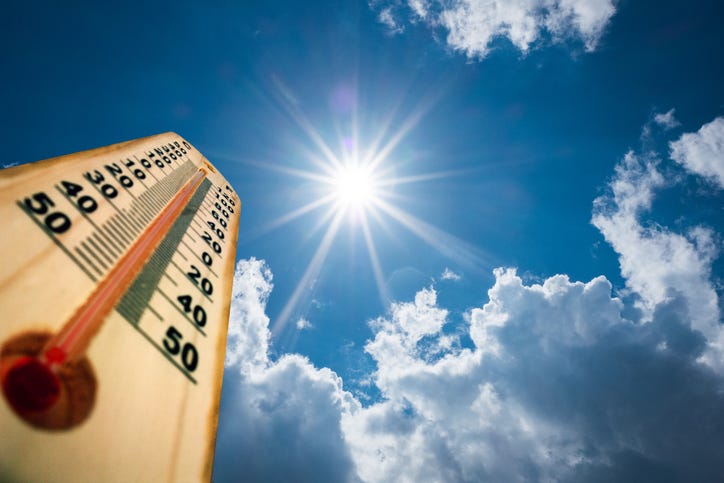
This was not the El Niño summer you were looking for with milder temperatures or prolific rainfall, like those recently in 2002, 2004, 2007, 2016 and 2019.
This was the hottest and driest El Niño summer on record at Dallas/Fort Worth International Airport. El Niño/Southern Oscillation records began in 1950. The National Weather Service in Fort Worth began summer records back in 1899.
You may remember last summer was the No. 4 hottest for highest average temperature, and then it went out with a bang with the wettest August on record.
This year’s season was largely driven by August’s heat. The month ended as the second hottest on record behind 2011. Additionally, there were 24 triple-digit days for the month which ranks No. 7 on August’s 100-degree days list, the most since 2011 had 28 – No. 1 on the list from the weather service.
August-Highest Average
1 93.4 2011
2 92.9 2023*
3 91.1 1952
4 90.3 1951
5 90.2 2000
90.2 1999
7 89.8 2010
89.8 2006
9 89.3 1943
10 88.7 1954
August-Highest Maximum
1 104.3 2011
2 104.2 2023*
3 103.5 1952
4 102.9 1951
5 101.9 2000
6 101.7 1999
7 101.1 1943
8 100.7 2006
9 100.5 2010
100.5 1956
In terms of the summer average temperature extreme, 2023 rivaled the three hottest summers ever in 2011, 1980 and 1998 in North Texas.
There were more days with low temperatures in the 80s than the highest amount seen in 2011.
Greatest Annual Days with Minimum 80°F or Greater
1 55 2011
2 44 2023*
3 42 2022
4 39 1998
Through Aug. 31, this summer notched 47 days with at least 100 degrees which tied the total from 2022. That stands as sixth on the most 100-degree days list with more to come in September.
Calculating the summer average temperature between the lows and highs, 2023 finished No. 3 behind the two hottest of 2011 and 1980.
Summer (June-August) Highest Average
1 90.5 2011
2 89.2 1980
3 88.7 2023*
4 88.3 1998
5 88.2 2022
6 87.7 1954
7 87.5 1952
8 87.4 2010
87.4 2008
87.4 1934
Moreover, the North Central Texas climate division is in a critical period of dryness with nearly daily fire weather alerts. Since July 17, only a trace of rain has fallen at DFW Airport – 46 consecutive days to rank tied for ninth on the longest rain-free period. Unfortunately, this stat will continue until further notice.
Editor's note: Paul Ruekberg is a Dallas-based independent journalist covering national and local news, sports and weather for Dallas/Fort Worth.
LISTEN on the Audacy App
Tell your Smart Speaker to "PLAY 1080 KRLD"
Sign Up to receive our KRLD Insider Newsletter for more news
Follow us on Facebook | Twitter | Instagram | YouTube

